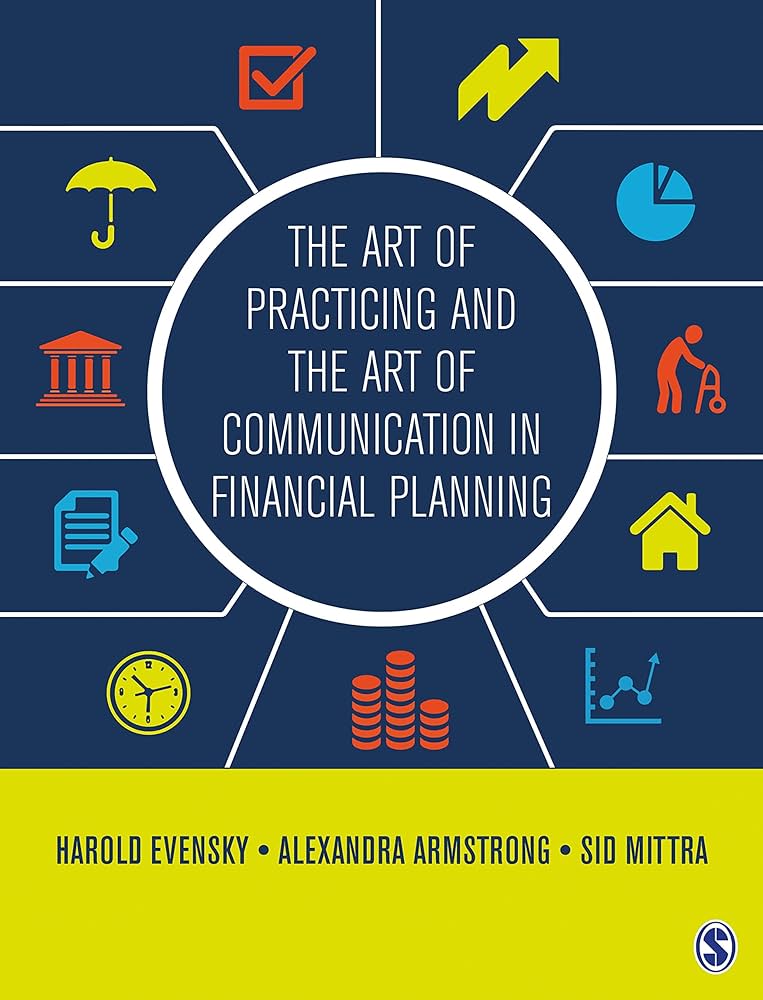Essentials of Wealth Management
So, I’ve been thinking about how managing money isn’t just about making more of it; it’s an art, a science, maybe even a dash of philosophy, too. That’s where the essentials of wealth management come into play. It’s not just a fancy term for the rich and famous; it’s actually a crucial framework for anyone looking to secure their financial future. I’ve put together some key insights on what wealth management really entails, from understanding your financial goals to crafting strategies that align with them. Honestly, it’s about getting to a place where you can make informed decisions that propel you toward financial peace and stability. Let’s unpack what makes wealth management so vital and how it can be a game-changer in your financial journey.
Understanding Wealth Management
Definition and Scope
When I first delved into the realm of finance, the term “wealth management” seemed so broad and intimidating. But really, it’s about creating a strategy to manage one’s personal finances and investments. This encompasses a wide range of services such as financial planning, investment management, tax planning, retirement planning, and estate planning. Essentially, it’s all about ensuring my financial health is on track not just for today, but for the future as well.
The Importance of Wealth Management
Why is wealth management so crucial, you might ask? Well, for starters, it helps me maintain a clear picture of my financial status. By effectively managing my wealth, I can ensure that all aspects of my finances are working together in harmony to achieve my personal financial goals. It’s about making the most of what I have, planning for eventualities, and securing my financial future.
Wealth Management vs. Asset Management
Initially, I confused wealth management with asset management, but they’re not quite the same. Asset management mainly focuses on growing my investments and is just one component of wealth management. On the other hand, wealth management covers a broader spectrum, including tax planning, estate planning, and retirement planning—making it a holistic approach to managing my entire financial life, not just my investments.
Who Needs Wealth Management?
One might wonder if wealth management is only for the wealthy. However, the truth is, anyone who wants to optimize their financial situation and plan for the future can benefit from wealth management. Whether it’s someone just starting their career, a seasoned professional, or even a retiree, managing wealth efficiently can significantly impact financial success and stability.
Setting Financial Goals
Identifying Short-term and Long-term Goals
The cornerstone of wealth management is setting financial goals. For me, identifying my short-term goals (like saving for a vacation or an emergency fund) alongside my long-term goals (such as retirement or buying a home) provides a clear direction for my financial plan.
Establishing Realistic Financial Goals
I’ve learned the hard way that setting unrealistic financial goals can lead to frustration. It’s vital to assess my current financial situation and set achievable goals. This means creating goals that are ambitious yet within reach considering my income, expenses, and lifestyle.
Prioritizing Goals
Not all financial goals are created equal. Once I’ve identified my goals, prioritizing them helps me focus on what’s most important. This might mean saving for a down payment on a house before upgrading my car, for example.
Adjusting Goals Over Time
Life is full of changes and surprises, so it’s likely that my financial goals will evolve over time. I’ve found it’s important to regularly review and adjust my goals to reflect my current circumstances, financial status, and shifting priorities.
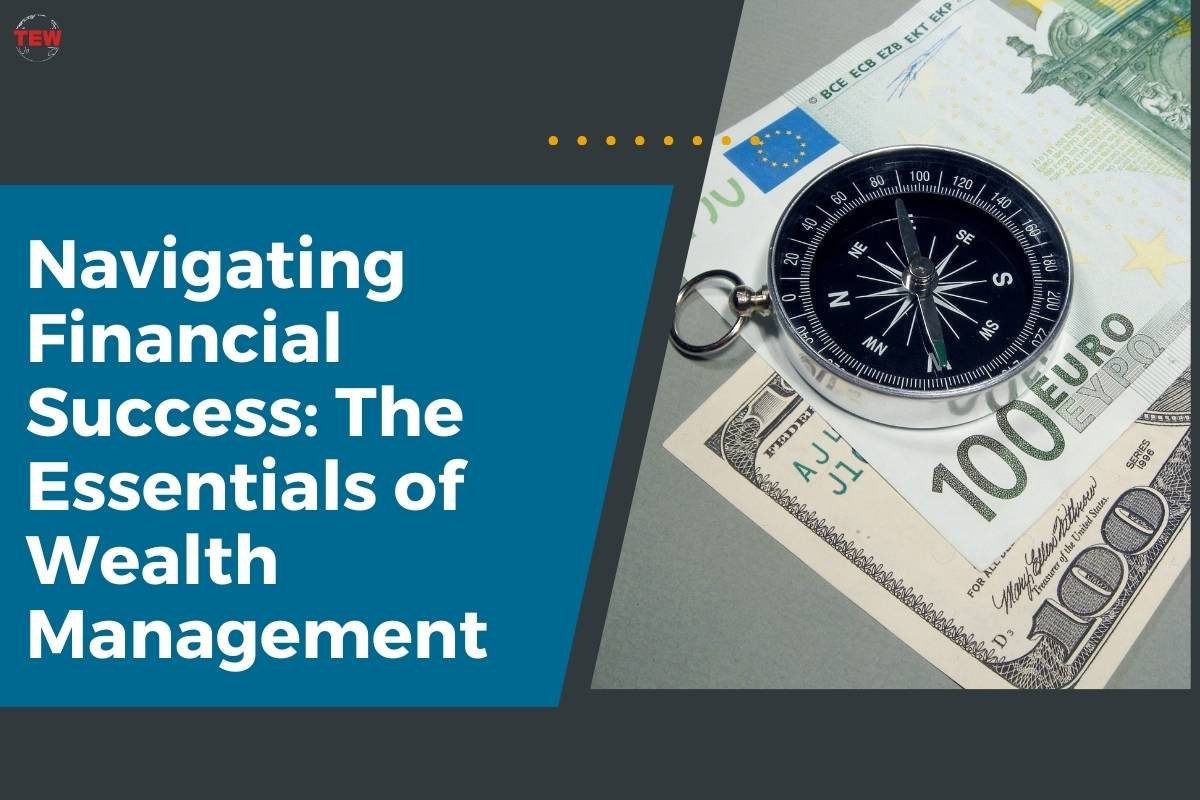
This image is property of theenterpriseworld.com.
Creating a Financial Plan
Assessing Financial Health
The first step in creating a financial plan is to assess my financial health. This includes evaluating my income, expenses, debt, and savings. Knowing where I stand financially helps identify areas that need improvement and sets the stage for a robust financial plan.
Developing a Savings Strategy
One of the key components of a financial plan is savings. I aim to set aside a portion of my income regularly, focusing on building an emergency fund and then savings towards my prioritized goals.
Budgeting for Wealth Management
Budgeting is not about restricting my spending but about managing it wisely. Creating a budget helps me track my expenses, control my spending, and ensure that I’m allocating resources towards my financial goals effectively.
Incorporating Investments into Financial Planning
Investments play a crucial role in wealth management. They are vehicles that can potentially grow my savings and help me achieve my financial goals faster. Including a mix of investments in my financial plan, aligned with my risk tolerance and investment horizon, is essential for a balanced approach.
Investment Strategies
Understanding Different Types of Investments
From stocks and bonds to mutual funds and real estate, the investment world is vast. Understanding the characteristics, risks, and potential returns of different types of investments helps me make informed decisions aligned with my financial goals and risk tolerance.
Risk vs. Return
In investing, risk and return are closely linked. Generally, the higher the risk, the higher the potential return. I strive to balance my desire for returns with my capacity and tolerance for risk, aiming for a diversified portfolio that can weather market fluctuations.
Diversification Strategies
Diversification is a key strategy to mitigate risk. By spreading my investments across different asset classes, sectors, and geographies, I can reduce the impact of a poor performance in any single investment.
Rebalancing the Portfolio
Over time, my investment portfolio can drift from its original target allocation due to varying performance across assets. Periodically rebalancing my portfolio back to its intended asset allocation helps maintain my desired level of risk and alignment with my investment goals.
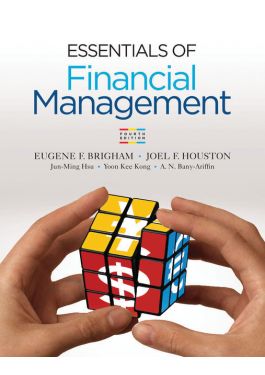
This image is property of www.cengageasiaestore.com.
Tax Planning
Understanding Tax Implications on Investments
Taxes can significantly impact the returns on my investments. Understanding how different investments are taxed helps me make smarter investment choices and improve my after-tax returns.
Strategies for Tax Reduction
There are strategies I can employ to minimize my tax burden, such as tax-loss harvesting, selecting tax-efficient investments, and taking advantage of retirement accounts. Utilizing these strategies allows me to keep more of my hard-earned money.
Tax-Advantaged Investments
Certain investments, like Roth IRAs and 529 college savings plans, offer tax advantages. By including these in my portfolio, I can benefit from tax-free or tax-deferred growth, enhancing my investment returns over time.
Working With a Tax Advisor
Tax laws are complex and ever-changing. Working with a tax advisor helps me navigate the intricacies of the tax system, ensure compliance, and identify opportunities for tax savings that align with my overall financial plan.
Retirement Planning
Estimating Retirement Needs
Planning for retirement starts with estimating how much I’ll need to maintain my desired lifestyle in retirement. This involves considering my expected lifespan, projected living expenses, and potential healthcare costs.
Types of Retirement Accounts
There are various retirement accounts available, each with its advantages. From employer-sponsored plans like 401(k)s to individual retirement accounts (IRAs), understanding the different types helps me choose the best options for my retirement savings.
Investment Choices for Retirement
Selecting the right investments for my retirement accounts is critical to achieving my retirement goals. This means considering my time horizon, risk tolerance, and the need for a diversified portfolio even within my retirement savings.
Estate Planning and Retirement
Estate planning is an important aspect of retirement planning, ensuring that my assets will be distributed according to my wishes upon my passing. This includes everything from drafting a will to setting up trusts and naming beneficiaries for my accounts.
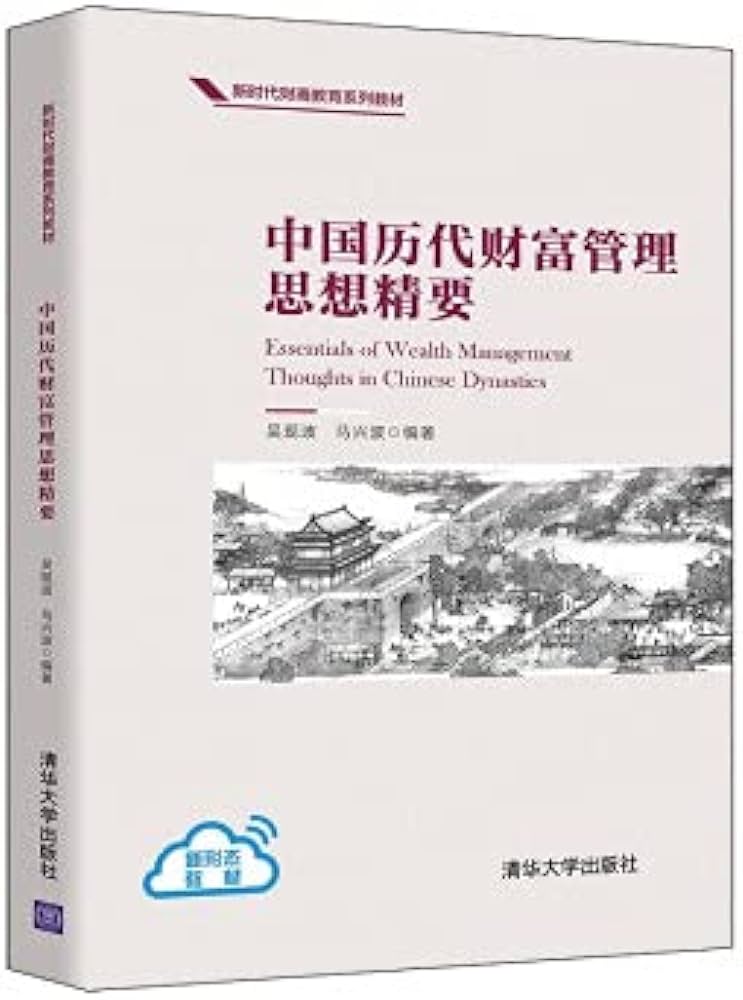
This image is property of Amazon.com.
Risk Management and Insurance
Identifying Potential Risks
Effective risk management starts with identifying potential risks that could derail my financial plan. This might include job loss, disability, or unforeseen medical expenses.
Insurance as a Risk Management Tool
Insurance is a key tool in managing financial risks. By securing coverage for significant risks, such as health, life, and property, I can protect myself and my family from potentially devastating financial losses.
Types of Insurance for Wealth Protection
There are various types of insurance, from health and life insurance to homeowner’s and auto insurance. Selecting the right types and coverage levels is crucial for comprehensive financial protection.
Evaluating Insurance Needs
My insurance needs can change over time as my life circumstances change. Regularly evaluating my insurance coverage ensures that I’m adequately protected without being over-insured or under-insured.
Estate Planning
Understanding the Importance of Estate Planning
Estate planning is essential for ensuring that my assets are distributed according to my wishes and that my loved ones are taken care of after I’m gone. It’s about maintaining control over my financial legacy.
Will vs. Trust
A will and a trust serve different purposes in estate planning. While a will specifies my wishes regarding asset distribution, a trust can provide more control over how and when my assets are distributed. Understanding the differences helps me choose the right tools for my estate plan.
Power of Attorney
A power of attorney is a document that grants someone else the authority to make financial or healthcare decisions on my behalf should I become incapacitated. It’s a crucial component of a comprehensive estate plan.
Healthcare Directives
Healthcare directives, including a living will and a healthcare proxy, allow me to make my wishes known regarding medical treatment if I’m unable to communicate. These documents help ensure my healthcare preferences are respected.
Beneficiary Designations
Beneficiary designations on accounts like life insurance policies and retirement accounts can supersede instructions in a will. Regularly reviewing and updating these designations is an important part of estate planning.
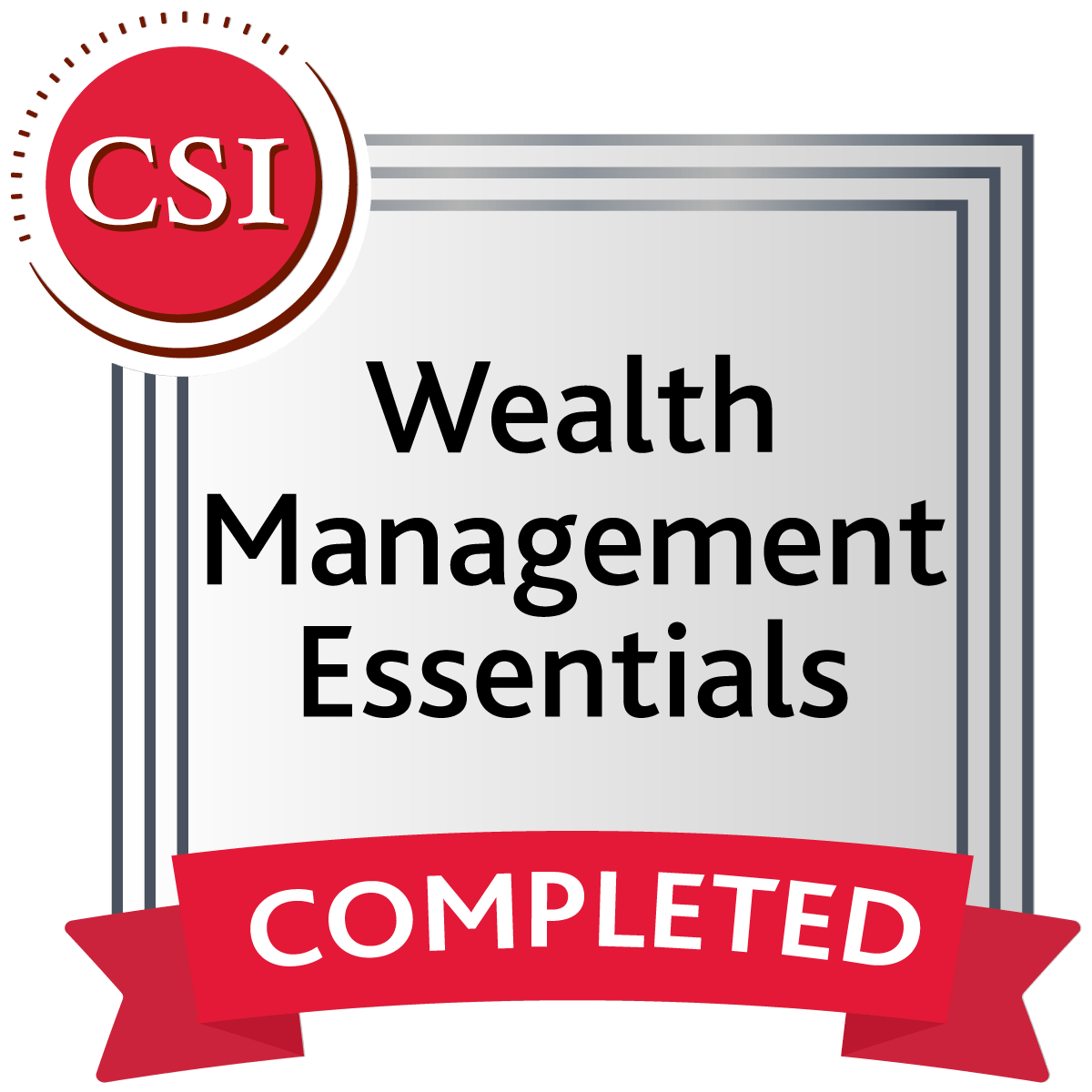
This image is property of images.credly.com.
Working with a Wealth Manager
Selecting the Right Wealth Manager
Choosing a wealth manager is a big decision. It’s important to find someone who understands my financial goals, has the right experience, and whose investment philosophy aligns with mine. Taking the time to research and interview potential advisors is key.
The Role of a Wealth Manager
A wealth manager plays a crucial role in helping me navigate my financial journey. They provide advice, manage investments, assist with tax planning, and help with estate planning—acting as a guide to help me achieve my financial goals.
Understanding Fees and Costs
Understanding the fees and costs associated with working with a wealth manager is vital. These can significantly impact my investment returns over time. It’s important to have a clear understanding of how my wealth manager is compensated and the total cost of their services.
Building a Relationship with Your Wealth Manager
Building a strong, trusting relationship with my wealth manager is crucial. Open communication, regular check-ins, and mutual respect make for a productive partnership that can help me stay on track towards achieving my financial goals.
Sustainable and Responsible Investing
What is Sustainable Investing?
Sustainable investing, also known as socially responsible or ethical investing, means considering environmental, social, and governance (ESG) criteria in addition to financial returns when making investment decisions. It’s about investing in companies that align with my values.
Types of Socially Responsible Investments
There are various types of socially responsible investments, from ESG funds that screen investments based on specific criteria to impact investments focused on generating positive social or environmental impacts.
Benefits of Sustainable Investing
Sustainable investing not only allows me to align my investments with my values but can also lead to long-term financial returns. Companies with strong ESG practices often demonstrate better risk management and long-term performance.
Incorporating Sustainable Investments into Your Portfolio
Incorporating sustainable investments into my portfolio involves researching and selecting investments that meet my financial goals and ESG criteria. This requires a delicate balance but is entirely achievable with the right approach and resources.
In conclusion, wealth management is a comprehensive approach to managing my financial life. From setting financial goals and creating a financial plan to investing wisely and planning for retirement, every step taken is a move towards financial security and peace of mind. Working with the right professionals and staying informed allows me to navigate this complex but rewarding journey.

This image is property of www.realvantage.co.






